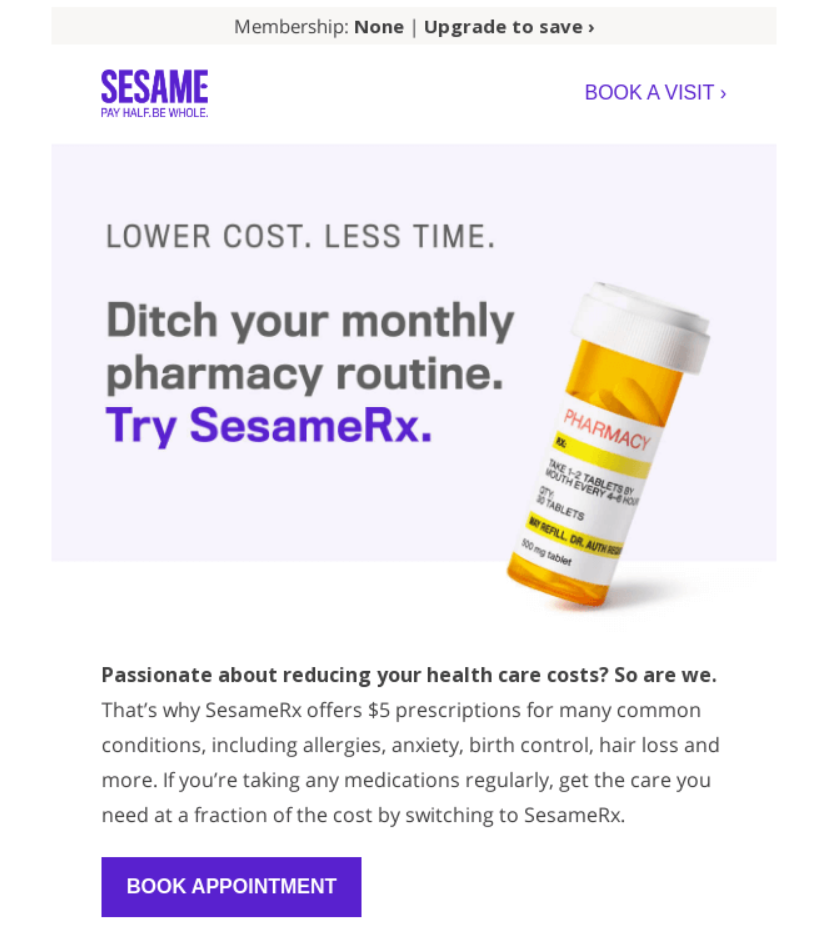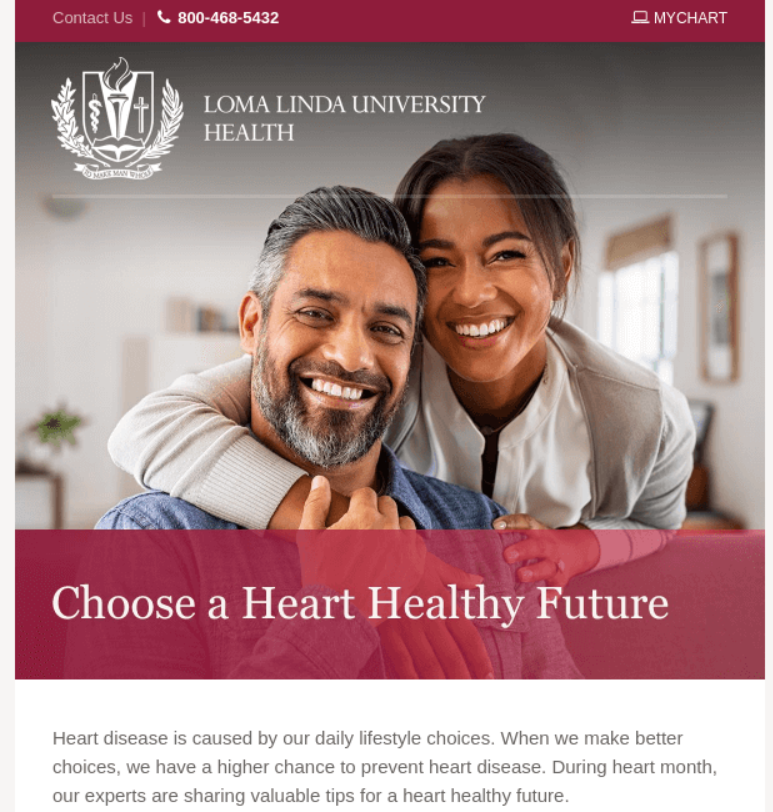The Role of Email Marketing in Patient-Centered Healthcare

In the realm of healthcare, patient-centered care is no longer a luxury, but a necessity. It's a model that prioritizes the patient's needs, preferences, and values. Email marketing, often overlooked, plays a pivotal role in this model. It's a tool that can enhance communication, foster engagement, and improve patient experience.
But how can healthcare providers leverage email marketing to deliver patient-centered care? What strategies should they adopt to ensure their emails resonate with patients and drive engagement?
In this article, we'll delve into the role of email marketing in patient-centered healthcare, offering insights and strategies to help you enhance patient care through effective communication.
Understanding Patient-Centered Healthcare
Patient-centered healthcare is a care model that places the patient at the heart of all decisions. It's about understanding their unique needs, values, and preferences. This approach goes beyond just treating the disease. It focuses on the holistic well-being of the patient, considering their physical, emotional, and social needs. In this model, communication is key. It's about keeping patients informed, engaged, and empowered to take charge of their health.
And that's where email marketing comes in, serving as a powerful tool for effective, personalized communication.
The Intersection of Email Marketing and Patient Care
Email marketing in the healthcare industry goes beyond just promoting services or products; it serves as a crucial communication channel that allows providers to share important health information, updates, and reminders with patients. By utilizing email marketing, healthcare professionals can enhance patient care and engagement by providing valuable resources and advice to patients in a convenient and timely manner.
Not only does email marketing help healthcare providers to communicate effectively with their patients, but it also allows for the promotion of patient-centered initiatives. By tailoring email content to support patient-centered care, providers can significantly improve the overall patient experience. This can include sending welcome emails, personalized messages, appointment reminders, and educational resources that cater to the individual needs and preferences of each patient. Ultimately, implementing patient-centered email marketing strategies can lead to better patient satisfaction and outcomes.

Sesame welcome email as shared by The Email Marketers
It's about delivering the right message, to the right patient, at the right time.
Personalization: The Heart of Patient-Centered Email Strategies
Personalization is key in patient-centered email marketing. It's not just about addressing the patient by name. It involves understanding the patient's unique health needs and preferences. This information is used to tailor the content of the emails. For instance, a diabetic patient might receive emails about managing their condition. These could include diet tips, exercise recommendations, and medication reminders.
 Personalized Example as shared by The Email Marketers
Personalized Example as shared by The Email Marketers
This level of personalization makes the patient feel valued and understood. It also increases the likelihood of the patient engaging with the content.
In essence, personalization enhances the patient experience and promotes better patient care.
Best Practices for Segmenting Your Patient Audience
Segmenting your patient audience is crucial for effective email marketing. It involves grouping patients based on shared characteristics.
These could be demographic factors, health conditions, or treatment history. For example, you might have a group for patients with chronic conditions.
By segmenting your audience, you can send more relevant and personalized emails. This can lead to improved patient engagement and satisfaction.
Crafting Engaging Content for Enhanced Patient Experience
Creating engaging content is essential for successful email marketing campaigns. It goes beyond just imparting information; it is about establishing a meaningful connection with patients on a personal level. By crafting content that resonates with the recipient, you can cultivate a sense of trust and loyalty, ultimately leading to higher engagement rates and increased patient satisfaction.
One effective way to make your content more engaging is to incorporate storytelling. By sharing success stories, patient testimonials, or educational content related to health and wellness, you can capture the attention of your audience and make the information more relatable. Stories have a way of drawing people in and creating an emotional connection, making them more likely to remember and act upon the message being conveyed. Remember, the ultimate goal is to not only inform but also to enhance the overall patient experience.
In addition to compelling storytelling, it is crucial to include a clear call-to-action in every email communication. A call-to-action prompts the recipient to take a specific action, whether it be scheduling an appointment, downloading a resource, or reading a blog post. By providing a clear direction for patients to follow, you can guide them towards the next step in their healthcare journey. This not only increases the likelihood of them engaging with your content but also helps you track and measure the effectiveness of your email marketing efforts.
Measuring Success: Metrics that Matter in Patient-Centered Email Marketing
To accurately assess the efficacy of your email marketing efforts, it is important to monitor various key performance indicators. While open rates and click-through rates provide valuable insights into patient engagement with your emails, they only scratch the surface of the bigger picture. Delving deeper into patient feedback through surveys or feedback forms can offer valuable perspectives on how your emails are being received and perceived by your target audience.
It is crucial to keep in mind that the ultimate objective of your email marketing strategy should be to enhance patient care and overall satisfaction. In order to gauge the impact of your emails on patient care, consider tracking metrics that are directly tied to patient outcomes. For instance, measure whether your emails are contributing to a reduction in no-show rates or encouraging patients to seek preventive care measures. By aligning your email marketing goals with the overarching aim of improving patient care, you can better strategize and tailor your approach to deliver more meaningful and impactful content to your audience.
Ethical Considerations and Compliance in Patient Email Communication
When it comes to patient email communication, ethics and compliance are paramount. You're dealing with sensitive patient data. So, you must ensure privacy and comply with regulations like HIPAA. Obtaining patient consent for email communications is also crucial. It's not just about legal compliance. It's about respecting patient autonomy and building trust.
Remember, ethical considerations extend to content too. If you're using patient testimonials or stories, ensure you have proper consent. Anonymize data where necessary to protect patient privacy.
In all, ethical and compliant email communication is a cornerstone of patient-centered healthcare.
Conclusion: The Future of Digital Patient Engagement
Patient-centered healthcare email marketing is more than a trend. It's a powerful tool for enhancing patient experience and improving patient care. As we move forward, the landscape of digital health innovations will continue to mature, bringing with it evolved strategies for engaging with patients.
Looking ahead, we anticipate a shift towards more personalized and data-driven email marketing campaigns that adhere strictly to ethical standards and compliance regulations. CareLaunch is at the forefront of this evolution, providing tools that empower healthcare providers to conduct email marketing that is not only effective but also fully compliant with HIPAA standards.
The future of healthcare communication hinges on a strategy that places patients firmly at the center, ensuring that every interaction adds value to their care journey and respects their privacy and preferences. With CareLaunch, healthcare providers can leverage cutting-edge technology to meet and exceed patient expectations, fostering trust and loyalty while improving health outcomes through effective and compassionate digital engagement.
